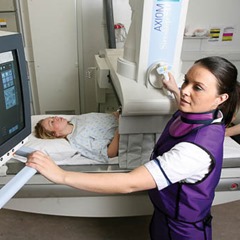Health complaints on the rise
 Ombudsman Tom Frawley is calling for clearer responses when families question the quality of health and care services.
Ombudsman Tom Frawley is calling for clearer responses when families question the quality of health and care services.
Complaints about health and social care services have almost doubled over the last year while the general dissatisfaction with public services is up by nearly a third. The nature of health-related complaints is also increasingly serious with a growing number covering serious clinical incidents or the death of a relative.
The Ombudsman, Tom Frawley, noted the “ongoing pressures” facing the sector but openness and transparency would maintain the trust and confidence of patients and their families. Rigorous and professional standards of complaint handling and providing clear explanations as early as possible were essential elements of that approach.
Between 2012-2013 and 2013-2014, the Ombudsman recorded the following rises in complaints:
• 46 per cent for health and social care;
• 27 per cent for local government services;
• 19 per cent for central government services; and
• 31 per cent in general.
A total of 370 health and social care cases were received last year, out of 972 cases overall.
Half of these cases related to clinical care. Complainants often feel vulnerable due to the sensitive nature of their treatment but responses from health and social care organisations were often “inadequate and at times evasive”.
The most common questions were simple ones e.g. whether something went wrong and, if so, why. Incomplete answers can lead to suspicions that information is being withheld.
A “growing culture” of poor record-keeping is also apparent. Frawley states that it is “essential that appropriate and accurate notes are made” and that these cover the care and treatment provided, medication prescribed and administered, and communication with the patient and their family.
Good note-keeping also “provides protection to clinicians and nursing staff involved in patient care by providing a clear picture of their actions and reasons for decisions.” Where a breach was identified, the Ombudsman was able to secure written apologies, changes in procedures within an organisation, and compensation (ranging from £250 to £17,500).
Planning and rates accounted for around 40 per cent of the complaints against central government departments and agencies. Councils can therefore expect a greater workload of complaints from next April.
The Ombudsman has taken on a new responsibility to investigate breaches of the new mandatory local government code of conduct. The previous code was voluntary with no sanctions but investigations can now lead to the censure, suspension or disqualification of a councillor. Complaints must be made in writing but can involve the giving of oral evidence later in the process.
“The notable increase in dissatisfaction from citizens merits particular attention from those charged with delivering public services locally,” Tom Frawley remarked. It was also important that the new complaints process was fair, proportionate and ensured natural justice for councillors.





